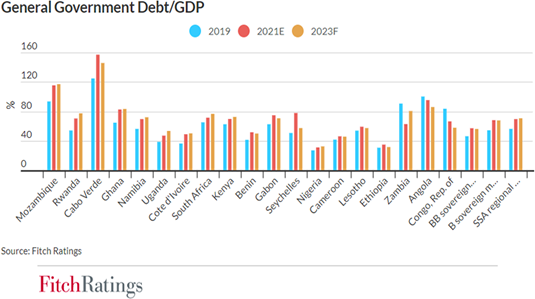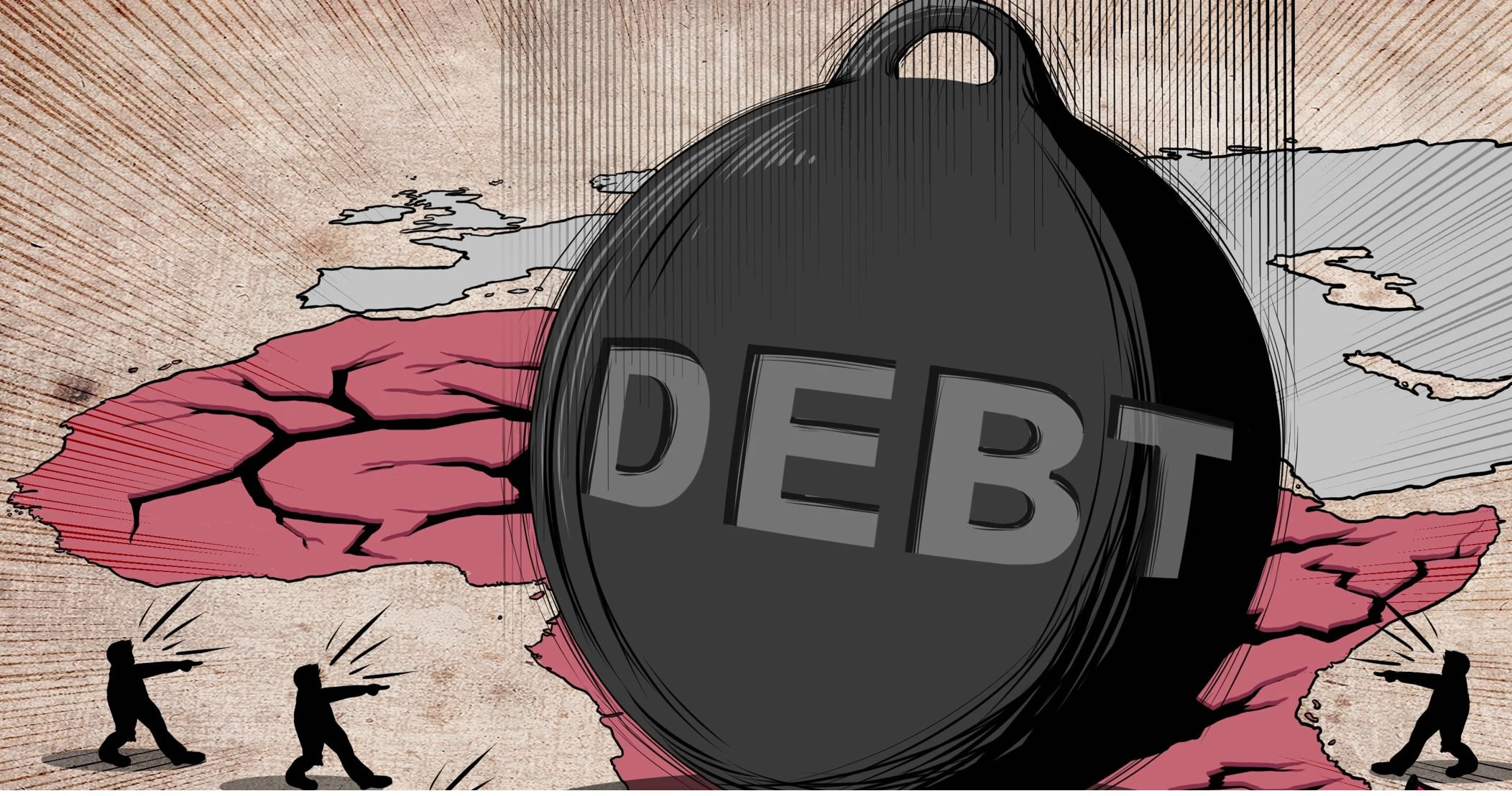Monday, February 14, 2022 / 08:07 AM / by Fitch Ratings / Header Image Credit: South China Morning Post
Public debt trajectories in sub-Saharan Africa (SSA) will see greater differentiation over the next two years after a general deterioration in public finances over 2020-2021, says Fitch Ratings. A rise in government debt/GDP would be a potential negative rating action trigger for most SSA sovereigns, particularly those whose ratings are on negative outlook.
Efforts to contain Covid-19 outbreaks have hurt economic activity, weighing on tax revenues, even as public expenditure pressures have risen with demands for additional healthcare spending and stimulus. General government (GG) debt/GDP rose between 2019 and 2021 in all Fitch-rated SSA sovereigns apart from Angola (B-/Stable), Zambia (RD) and Republic of Congo (CCC). In Angola and Congo, this reflected in part the effects of higher oil prices in 2021, while in Zambia nominal GDP growth was strong and exchange-rate appreciation boosted nominal GDP relative to US dollar-denominated debt.

Our forecasts for SSA GG debt trajectories diverge more widely over 2022-2023, as pandemic-related pressures recede and economic recoveries gather momentum. We expect GG debt/GDP in 2023 to fall below 2021 levels in nine of our 19 rated SSA sovereigns.
In some countries, like Benin (B+/Stable), this will be helped by rapid economic growth. The biggest debt/GDP declines will be seen in Seychelles (B+/Stable) and Cabo Verde (B-/Stable), driven by the delayed recovery in global tourism flows boosting nominal GDP. Strong commodity prices - notably for oil - will support government revenues and nominal GDP (the denominator in the debt/GDP ratio) in Angola, Congo and Gabon (B-/Stable), helping to bring down debt ratios.
Improvements in liquidity and fiscal (and external) performance, helped significantly by the rebound in oil prices, contributed to our recent decisions to upgrade ratings for Angola and Gabon. We revised ratings to 'B-' with a Stable Outlook, from 'CCC', in August 2021 for Gabon and January 2022 for Angola. The likelihood of debt stabilisation was also a factor in our decision to upgrade Benin to 'B+', from 'B', in October 2021. The ebbing of risks associated with the pandemic has also factored into recent positive rating actions.
GG debt/GDP will increase for the remaining 10 Fitch-rated SSA sovereigns between 2021 and 2023. This will include eight of the 10 countries with the largest increases in debt/GDP ratios between 2019 and 2023, pointing to the challenge of restoring public finance discipline following a particularly severe economic shock.
Persistent low growth and risks to socio-political stability have been impediments to stabilising debt trajectories in sovereigns such as South Africa (BB-/Stable) and Namibia (BB/Negative). Meanwhile, some previously fast-growing economies in east Africa could slow if higher public debt constrains their ability to pursue public investment-led growth. Slower growth would, in turn, hinder fiscal consolidation. Higher US interest rates may also hamper consolidation, to the extent that they translate into higher financing costs for African governments.
Ghana's loss of market access following a pandemic-related surge in government debt was a driver of our decision to downgrade its rating to 'B-'/Negative from 'B'/Negative in January 2022. Debt dynamics also led us to revise the Outlook on Rwanda's 'B+' rating to Negative, from Stable, in July 2021.
Failure to achieve progress in stabilising public debt trajectories is one of the key sensitivities that could lead to rating downgrades over the next two years for SSA sovereigns on Negative Outlook such as Kenya (B+/Negative), Lesotho (B/Negative), Namibia (BB/Negative), Rwanda and Uganda (B+/Negative). Ghana's 'B-' rating is also on Negative Outlook, although triggers for a downgrade in its case are more likely to be related to a deterioration in external or fiscal liquidity conditions.
 Lagos, NG • GMT +1
Lagos, NG • GMT +1











 185 views
185 views





 Sponsored Ad
Sponsored Ad
 Advertise with Us
Advertise with Us









